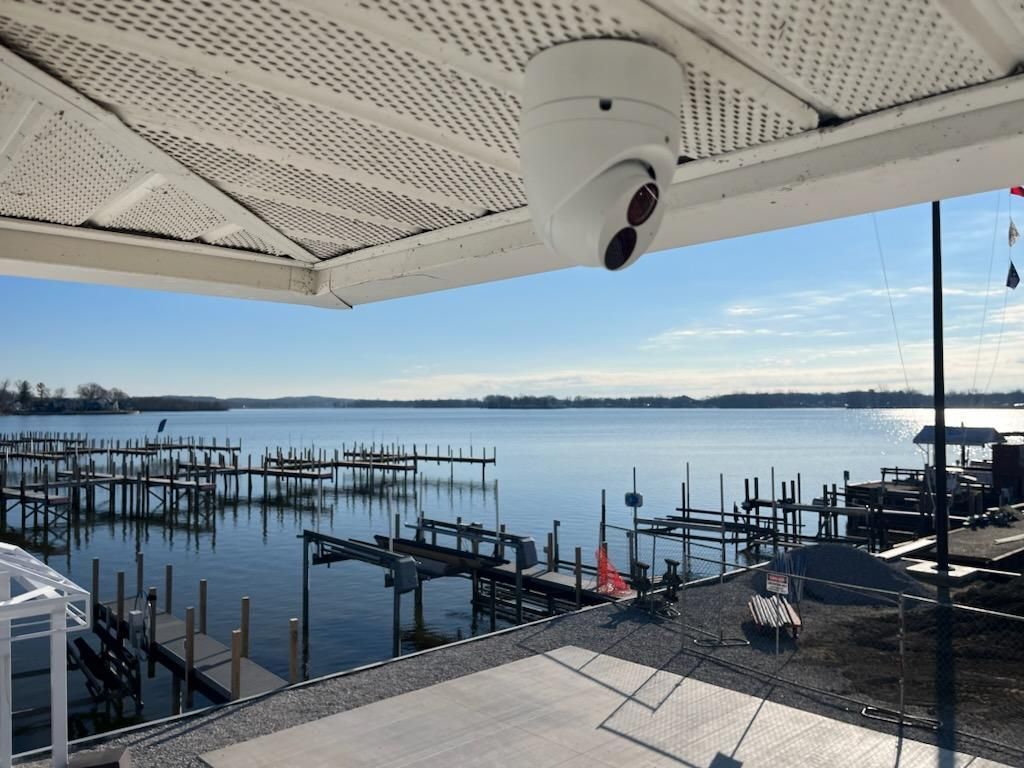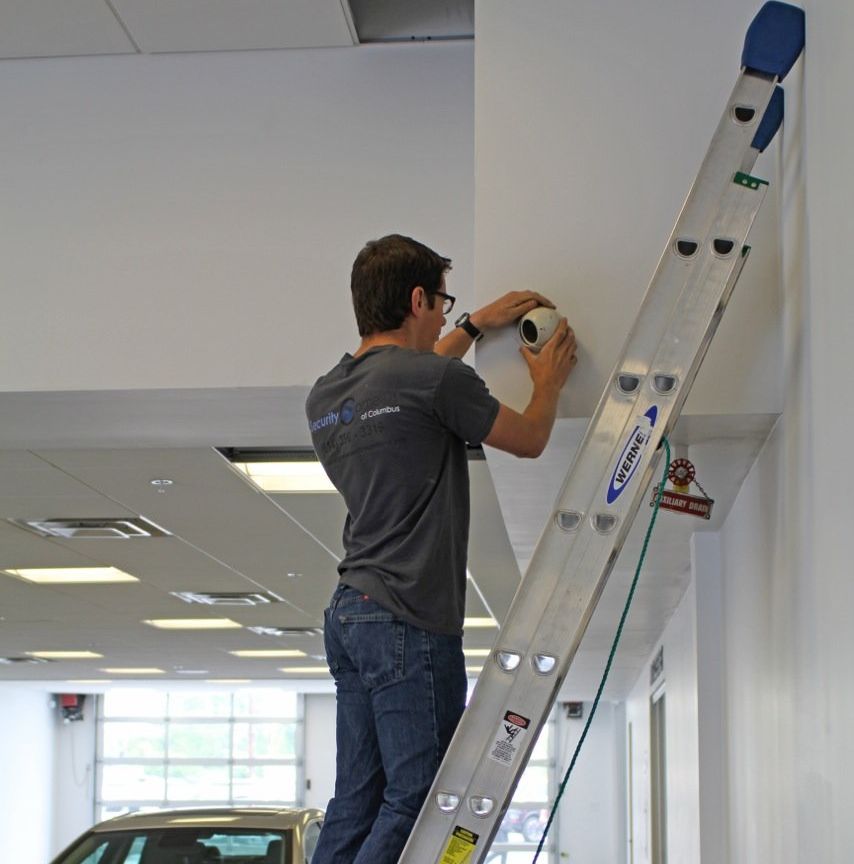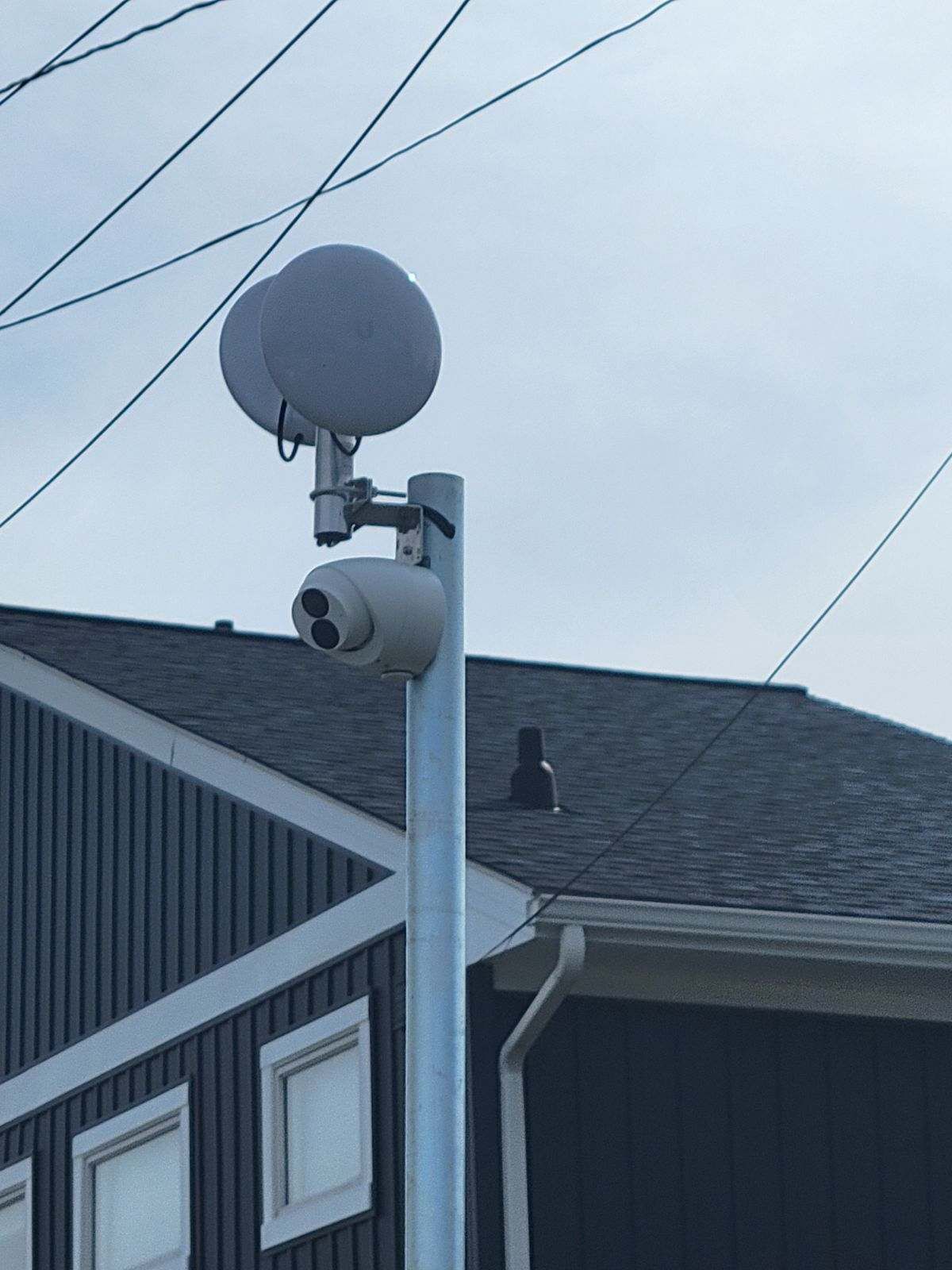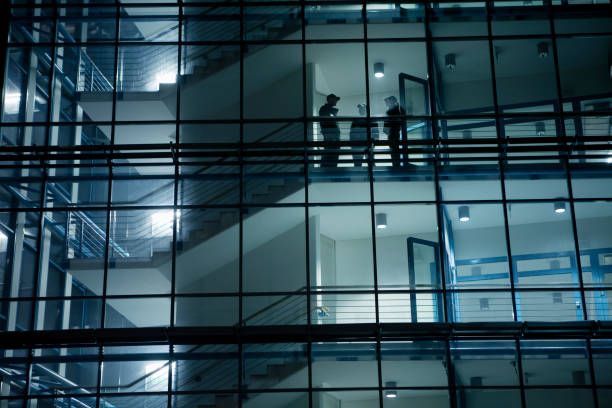What is the Best Commercial Security Camera System?
Protect Your Business with the Best Commercial Security Camera Systems in OH
Selecting the best commercial security camera system is essential for safeguarding your business in Ohio. With crime rates fluctuating and technology constantly evolving, investing in a reliable and advanced camera system can provide peace of mind and protection against potential threats. From employee safety to asset protection, businesses must carefully evaluate their security needs to ensure they choose a system that meets modern requirements.
In this article, we’ll explore key features, costs, and important considerations when selecting the best commercial security camera system for your Ohio-based business.
Table Of Contents:
- Essential Features to Look For the Best Commercial Security Camera System
- Cost Considerations
- Impact of Resolution on Effectiveness
- Brand Reliability
- Advantages of IP Cameras
- Importance of Night Vision Capabilities
- Storage Options for Recorded Footage
- User Interface and Mobile App Support
- Installation Process Overview
- Weatherproof and Vandal-Proof Features
- How to Choose the Right Commercial Security Camera System for Your Industry
- Conclusion
The Best Commercial Security Camera System: Essential Features to Look For
When choosing a business security camera system, several essential features can significantly impact performance and security. These features ensure that the system operates efficiently and effectively under various circumstances, providing maximum protection for your big or small business.
IP Camera vs. Analog
One of the first decisions business owners face is whether to opt for IP cameras or traditional analog cameras. IP cameras offer numerous advantages over their analog counterparts, including superior image quality, remote access capabilities, and more flexibility in setup. With higher resolutions, IP cameras provide clear footage, ensuring that every detail is captured. This clarity is essential in detecting threats, identifying intruders, and providing useful evidence for law enforcement.
On the other hand, analog cameras are generally more affordable but lack the advanced capabilities that IP cameras provide. They may be suitable for smaller businesses with basic security needs, but for those seeking robust protection, IP cameras are often the better choice.
Affordability
The balance between cost and functionality is a crucial consideration for businesses. Affordability doesn’t necessarily mean compromising on quality; many security camera systems offer a range of features at different price points. While it might be tempting to choose the least expensive option, it's important to weigh the benefits of higher resolution, better low-light performance, and longer warranties. These features may cost more upfront but save money in the long run by reducing maintenance and replacement needs.
Resolution
When it comes to resolution, 8MP (4K) is becoming the standard for commercial security camera systems. High resolution is vital for capturing clear images, especially when zooming in to identify faces, license plates, or other critical details. With 4K resolution, businesses can ensure that even the smallest details are visible, which is crucial for evidence collection and real-time monitoring.
Video surveillance systems with lower resolution may seem like a more cost-effective option, but they can lead to blurry or pixelated images that are of little use in identifying suspects or capturing important details. In the case of an incident, this can result in lost time and resources.
Wide Angle View
A wide-angle view is another essential feature, particularly for businesses with large areas to cover. A camera with a 100+ degree horizontal field of view can monitor more space with fewer cameras, reducing installation and equipment costs. Wide-angle cameras also minimize blind spots, ensuring comprehensive coverage of your business premises.
Warranty Considerations
When investing in a commercial security camera system, it's important to consider the warranty provided by the manufacturer. A 3-year warranty is often a good standard, offering peace of mind that the system will be supported in the event of technical issues or hardware malfunctions. Longer warranties may be available with certain brands, providing even greater assurance of product longevity.
Cloud-Based Access
Modern security systems often come with cloud-based access, allowing business owners to monitor their premises remotely. This feature is invaluable for those who need to keep an eye on multiple locations or want the convenience of checking in from their smartphone or laptop. With cloud-based systems, footage can be accessed from anywhere with an internet connection, offering greater flexibility and security.
Built-in Microphones
While not essential for all businesses, built-in microphones can enhance security by providing audio monitoring in addition to video footage. This can be useful in sensitive areas where verbal interactions may need to be recorded, such as entry points, customer service desks, or warehouses.
Low Light Performance
A high-quality camera system should also perform well in low-light conditions. Look for cameras with low-light performance capabilities, particularly those that provide color images in low light. Many modern cameras use infrared (IR) or starlight technology to capture clear footage even in near-total darkness, ensuring that your business is protected 24/7.
Licensing Plate Capture & Active Deterrence Systems
For businesses that need to monitor parking lots or entryways, license plate capture capabilities are crucial. Some advanced systems also include active deterrence features, such as flashing lights or sirens, which can be triggered when motion is detected. These systems can actively deter intruders or alert security personnel to potential threats in real-time.
CALL US FOR A FREE QUOTE
Cost Considerations
The cost of commercial security camera systems can vary widely based on the features, resolution, and number of cameras required. On average, high-quality commercial cameras can cost anywhere between $150 to $2,000 per camera, depending on the brand and capabilities. Additionally, businesses must factor in the costs of cable, back-end devices, and labor, which can range from $350 to $1000 per camera, depending on the complexity of the setup.
While the initial investment may seem steep, it’s essential to consider the long-term benefits of a reliable and efficient security system. A more expensive system with advanced features may reduce the risk of theft, damage, or liability, ultimately saving your business money in the long run.
Impact of Resolution on Effectiveness
Resolution plays a key role in the overall effectiveness of a security camera system. Higher resolution cameras offer greater pixel density, which enhances image clarity and the ability to zoom in on specific areas without losing detail. This is particularly important when relying on cameras to monitor large areas or to capture detailed images of individuals or vehicles.
In the security industry, DORI (Detection, Observation, Recognition, and Identification) metrics are used to determine the effectiveness of a camera system at various distances. 4K resolution cameras provide an excellent balance of wide-angle views and sufficient DORI metrics, making them ideal for businesses that require detailed monitoring at varying distances.
Brand Reliability
When selecting a security camera system, it's important to choose a brand known for reliability and quality. Some of the top brands for commercial systems include:
- Uniview
- Hanwha
- Hikvision
- Dahua
- AXIS
- Genetec
- Avigilon
- Bosch
- Pelco
These brands are recognized for their commitment to delivering high-quality, durable products. Many of them offer NDAA-compliant systems, ensuring they meet government regulations. When comparing brands, consider factors such as affordability, reliability, and the quality of customer support.
Advantages of IP Cameras
IP cameras offer significant advantages over analog systems. They provide better image quality, greater scalability, and advanced features like remote monitoring, video analytics, and easy integration with other security systems. IP cameras are also more cost-effective in the long run because they use network cables, which can transmit data and power simultaneously, reducing installation costs.
Importance of Night Vision Capabilities
Night vision is a critical feature for any commercial security system. Infrared (IR) and starlight technology ensure that cameras capture clear footage even in total darkness. Infrared cameras emit invisible light that allows them to record in pitch-black environments, while starlight technology amplifies low-light scenes to capture full-color images in near-darkness. Businesses operating after-hours or located in low-light areas should prioritize night vision capabilities.
User Interface and Mobile App Support
The user interface of a security camera system is crucial for ease of use. Look for systems that offer intuitive controls, accessible mobile app support, and advanced features like smart recording playback and object search functionalities. These features make it easier for businesses to review footage, search for specific incidents, and manage their security systems from any location.
Installation Process Overview
Installing a commercial security camera system typically involves several key steps:
1. Initial Assessment:
A security expert assesses your business's specific needs and provides recommendations on the number and placement of cameras.
2. Infrastructure Setup: Technicians install the necessary infrastructure, including mounting cameras, running cables, and setting up NVRs or cloud systems.
3. Customer Training:
After installation, customers are trained on how to use the system, including accessing footage, configuring alerts, and using the mobile app.
Weatherproof and Vandal-Proof Features
For outdoor cameras, durability is essential. Cameras should meet weatherproof standards (such as IP66 or IP67 ratings) to ensure they can withstand rain, snow, and extreme temperatures. Vandal-proof designs, such as IK10-rated housings, protect cameras from physical tampering or damage, ensuring the system remains operational even in high-risk environments.
How to Choose the Right Commercial Security Camera System for Your Industry
Selecting the right commercial security camera system depends largely on the unique needs and challenges faced by your specific industry. While many features are universal, certain industries may require specialized cameras, installation techniques, or monitoring options. Below are some guidelines to help different industries choose the best security system to fit their needs:
Retail Industry
Retail stores face frequent challenges related to theft, both by customers (shoplifting) and employees (internal theft). In these environments, it is essential to have a security camera system that offers:
- High-Resolution Cameras: To capture clear images of individuals’ faces and product labels in case of theft.
- Wide-Angle Views: Ensures that large areas, like shop floors or checkout counters, are fully monitored with minimal blind spots.
- Cloud-Based Access: Remote monitoring is crucial for managers who oversee multiple locations and need to view live footage from different stores simultaneously.
- Built-in Microphones: Useful in retail settings to record verbal interactions, especially for resolving disputes between staff and customers.
Manufacturing and Warehousing
In manufacturing plants and warehouses, surveillance is critical for both security and safety purposes. Facilities must monitor large areas for theft while also keeping an eye on workers to ensure that safety protocols are being followed.
- Durable, Weatherproof Cameras: Outdoor cameras for warehouse perimeters need to be weatherproof to withstand harsh conditions.
- Night Vision Capabilities: Many manufacturing facilities and warehouses operate 24/7, requiring night vision or starlight cameras to capture clear footage in low-light environments.
- License Plate Capture and Active Deterrence Systems: These features are essential for monitoring entry points, especially in warehouses with high-value goods.
- AI and Analytics: Advanced systems with AI capabilities can help in detecting unsafe behavior, such as workers not wearing helmets or operating equipment unsafely.
Healthcare Industry
Hospitals, clinics, and nursing homes require specialized security camera systems to ensure patient safety, monitor employee behavior, and safeguard against unauthorized access.
- Privacy Considerations: Cameras in healthcare facilities must comply with regulations like HIPAA to protect patient privacy while still offering security.
- High-Definition Cameras: These cameras should capture detailed footage to document any incidents related to patient care or staff behavior.
- Low-Light Performance: Many healthcare facilities operate round the clock, requiring cameras with strong low-light performance for hallways, parking lots, and emergency entrances.
- Access Control Integration: Security systems in healthcare facilities often need to integrate with access control systems to ensure only authorized personnel enter sensitive areas like pharmacies or surgical suites.
Educational Institutions
From K-12 schools to universities, educational institutions need robust security camera systems to protect students and staff and monitor large campus areas.
- Wide-Angle and PTZ Cameras: Schools often need a combination of wide-angle cameras for common areas and pan-tilt-zoom (PTZ) cameras to monitor high-traffic spots like entrances and hallways.
- License Plate Capture: Important for monitoring parking lots and tracking vehicles entering and leaving the campus.
- AI-Based Facial Recognition: In some cases, facial recognition software integrated with cameras can help identify unauthorized visitors or track student attendance.
- Cloud-Based Systems: For larger campuses, having remote access to camera footage via the cloud allows campus security officers to monitor multiple buildings simultaneously.
Hospitality Industry
Hotels, resorts, and other hospitality venues require security systems that ensure the safety of guests and employees while protecting property.
- Discreet Cameras: Hospitality venues often require more discreet, aesthetically pleasing cameras that don’t disrupt the guest experience.
- Mobile Access: Hotel managers benefit from mobile access, which allows them to monitor different parts of the property remotely and address any potential security issues quickly.
- Built-in Microphones and Two-Way Audio: Useful in lobbies, entrances, and service desks for monitoring interactions and responding to incidents in real-time.
- Integration with Other Systems: Security systems should integrate with other hotel systems, such as guest check-in systems, to enhance overall security.
Frequently Asked Questions (FAQs)
How does the resolution of a security camera affect its performance?
Higher resolution cameras, such as 4K, offer sharper images and better detail, which is particularly useful for identifying faces or license plates. The higher the resolution, the more pixels the camera captures, leading to clearer footage.
Is cloud storage more secure than on-site storage for security footage?
Both options have their pros and cons. Cloud storage allows for easy access from anywhere and automatic backups, but it requires a stable internet connection. On-site storage gives you complete control over your footage but may be vulnerable to physical damage or theft.
Do all security cameras have night vision?
Not all cameras are equipped with night vision. It’s essential to choose cameras with infrared or starlight technology if nighttime monitoring is necessary for your business.
Can I access my commercial security cameras remotely?
Yes, most modern IP cameras come with mobile app support and cloud-based systems that allow remote monitoring from smartphones, tablets, or computers, provided there is an internet connection.
What’s the difference between a vandal-proof and weatherproof security camera?
A vandal-proof camera is designed to resist tampering or destruction, typically by using reinforced housings. Weatherproof cameras, on the other hand, are sealed to withstand elements like rain, snow, and extreme temperatures.
How do I determine the right number of cameras for my business?
The number of cameras depends on the size and layout of your property, as well as the specific areas you want to monitor. A professional security expert can assess your needs and recommend the optimal number and placement of cameras.
How long does it take to install a commercial security camera system?
Installation times can vary depending on the size of your business and the complexity of the system. For smaller setups, installation can be completed within a day, while larger or more complex systems may take several days.
How often should I update my security camera system?
It's a good practice to update your system's software regularly to ensure it remains secure and functional. Hardware updates depend on the wear and tear of your equipment, but many systems last between 5 to 10 years with proper maintenance.
Conclusion
Choosing the best commercial security camera system for your business in Ohio is crucial for ensuring the safety of your property, employees, and assets. By carefully considering factors such as resolution, night vision capabilities, storage options, and brand reliability, you can invest in a system that offers long-term protection and peace of mind. At Security Cameras of Columbus, we specialize in providing tailored security solutions that meet the unique needs of your industry.
Contact us today to learn more about how we can help you secure your business with cutting-edge technology and expert installation services. Let us help you design a custom commercial security system that fits your budget and keeps your business safe around the clock.




